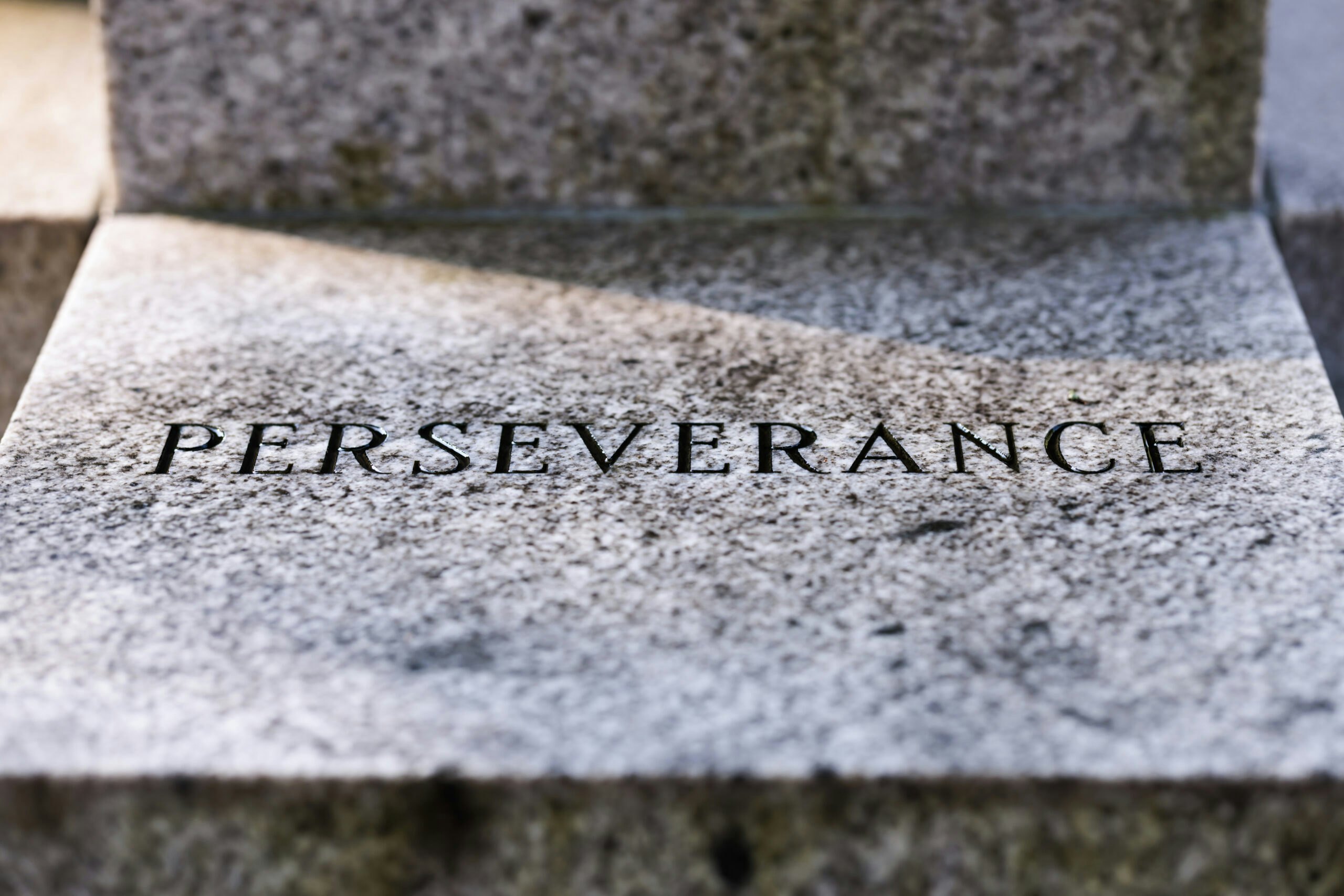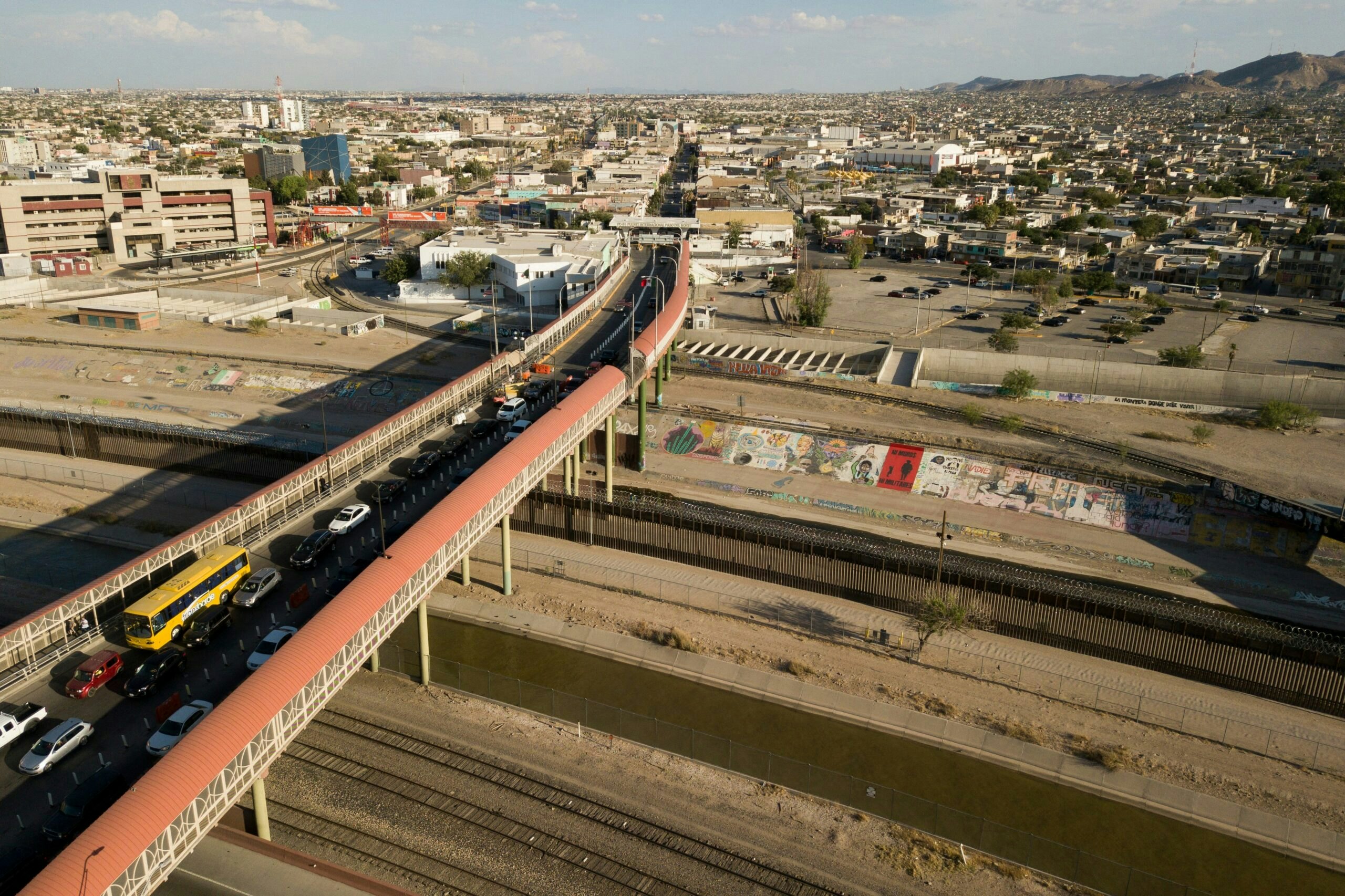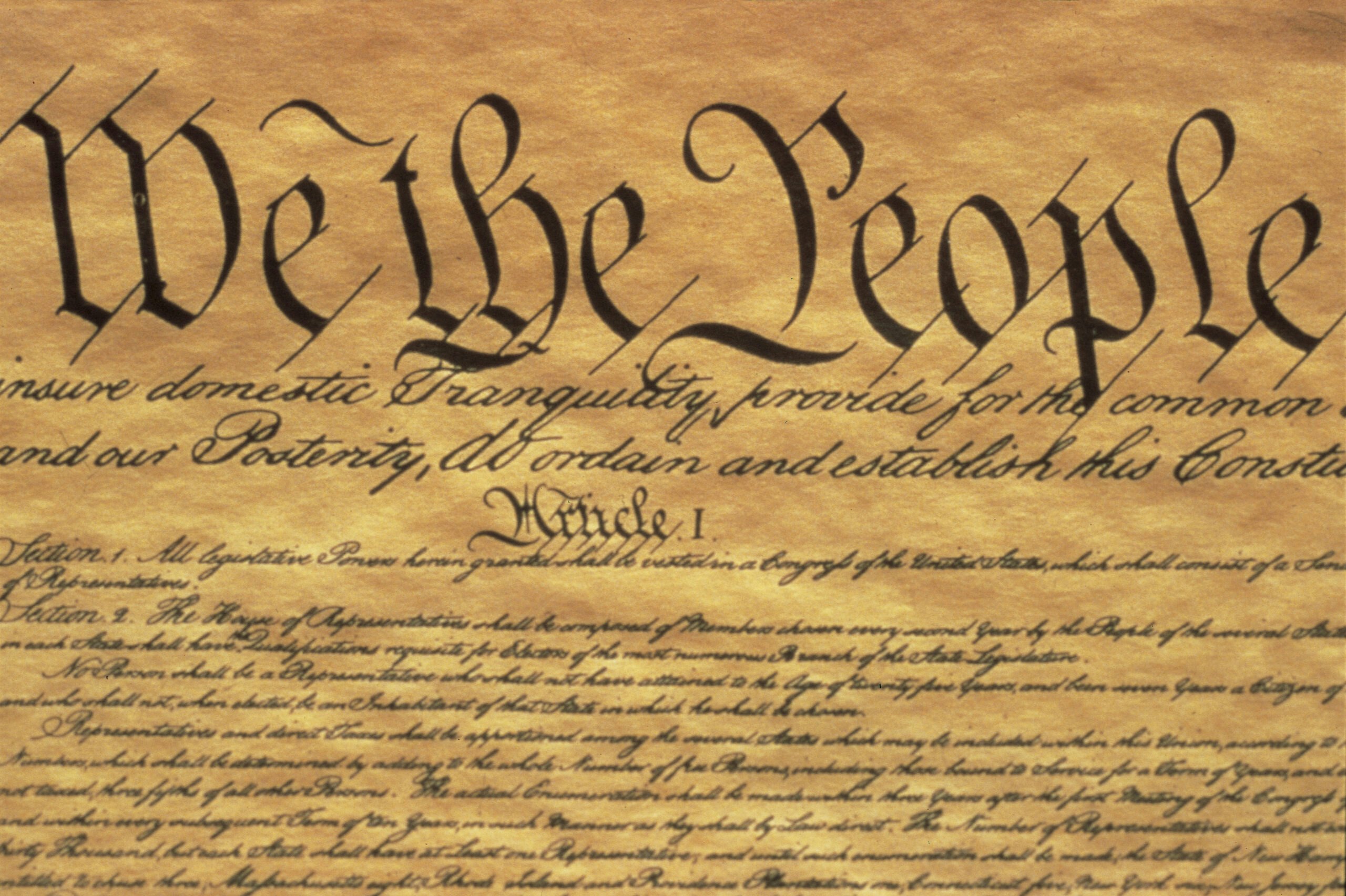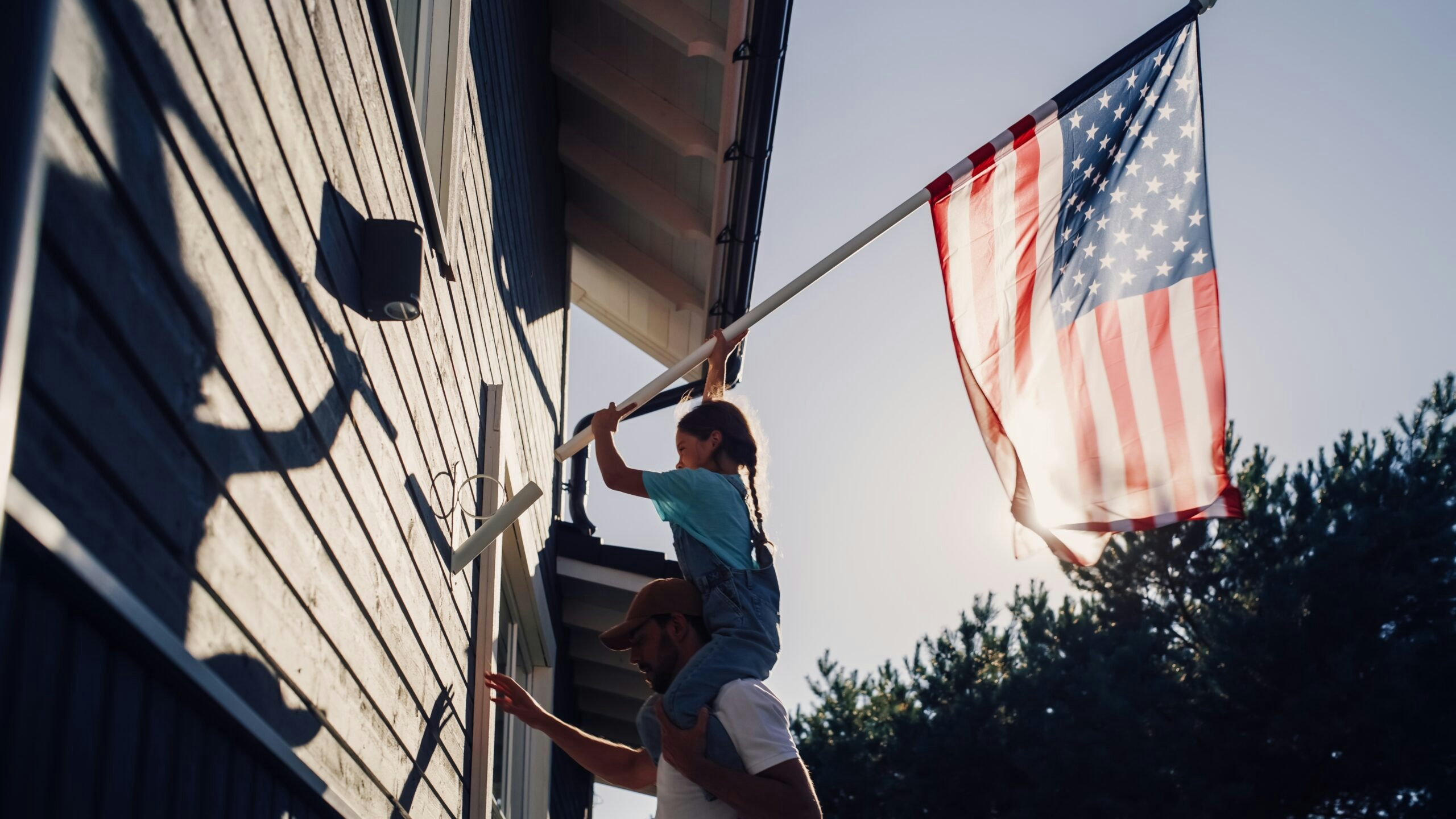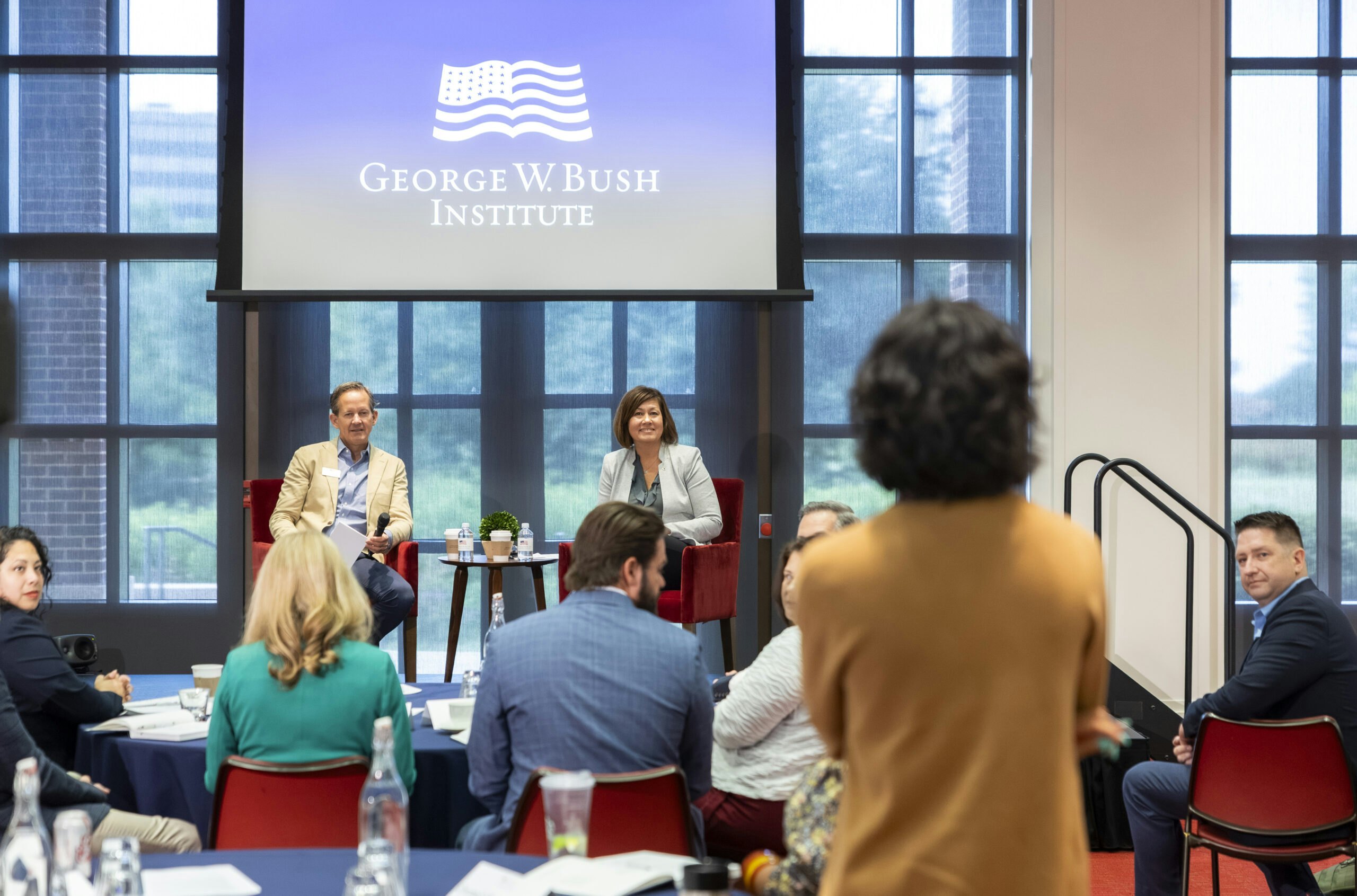During his 45-year journalism career, Martin Baron served as editor of the Washington Post, Boston Globe, and Miami Herald. After retiring from the Post in 2021, the Lehigh University graduate wrote a memoir, Collision of Power. The veteran journalist participated in a panel on restoring trust in the media at the George W. Bush Institute’s 2025 Forum on Leadership. We spoke beforehand about strategies to bolster such trust. The conversation has been edited for length and clarity.
What are some of the most important factors in strengthening trust in the media?
The first thing is that we in the media, and I still think of myself as a journalist, need to cover all of our community and all of our country. We need to reflect people’s lives separate from politics. Their struggles, their aspirations, their expectations. And people have to see themselves reflected fairly, fully, sensitively, and comprehensively in our coverage.
If they don’t see that, then they feel like their lives have been misrepresented or ignored. They won’t believe anything else we have to say.
The second thing is we need to be much more transparent about our work. Not just about who we are, but about how we do our work. People assume that we sit in an office and make this stuff up when, in fact, journalists are on the phone, out of the office, in the field, sometimes in war zones, trying to gather and verify information. That’s what credible, reliable journalists do. So, we need to show our work.
If there’s a court document we are relying on, we should show that document online. We have the tools to do that now. If there’s a video we are using, let’s show that. And not just a clip but the entire video. That way, people can see whether we’re taking something out of context. The same is true with an audio recording. And when we use data, we should always use links that take people to the dataset.
As much as possible, we should describe the processes and how we went about our work so that people can understand it. The message to the public should be, “Here’s our work, here’s what we did, you have the right to check it, and we are giving you the opportunity to do so.” We don’t do that much at all. We do very little of it.
Finally, the way people are consuming information is changing dramatically these days. We see that through Tik Tok, podcasts, and other means. Established journalistic organizations are communication companies, but the nasty fact is that we are failing as communicators. Others are succeeding at communicating, like influencers and podcasters. We need to rethink how we communicate information for the present day and for younger audiences that don’t consume information the way you and I did growing up. We need to rethink that.
These are the fundamental issues. On a bigger level, it’s important that we understand our mission, which I define as giving the public the information it needs and deserves to know so that people can govern themselves. At the heart of that mission is what it always has been since the nation’s founding and the Bill of Rights provided for a free press and free expression. And that is we are supposed to keep watch on governments, politicians, and power in this country. We need to be committed to that regardless of the pressures we face.
Second, it’s really important that we hold ourselves to the highest professional standards. I’ve been concerned about an erosion in standards in journalism over a number of years. It’s time to reevaluate our own imperfections and adjust for that.
Podcasters and influencers are having success because they communicate authenticity. We in the traditional journalism world have focused on authority. We seem like big, faceless institutions. People don’t trust institutions anymore. That’s a real problem. And it’s not just journalistic institutions.
Let me circle back to that point about covering your community and country. How do newsrooms do that? For example, is that hiring for people with a wide range of experience?
I realize the word “diversity” is in some disfavor these days, but the reality is we need diversity in the newsroom. We need to understand our entire community and our entire country.
Our individual life experiences are narrow. We need to understand other people’s life experiences. That’s the nature of journalism. We’re trying to tell everyone about someone they don’t know and who is living a different life.
We need to serve as an information bridge from one community to another. We need to have a lot of people from a lot of different backgrounds. Not just for reasons of race, sexuality, and ethnicity, although I think those are all extremely important. But also for issues of religion, class, geography, military service – you name it.
We had an effort at the Washington Post to hire more military veterans. We didn’t have that many, although we had been at war for such a long period of time. We needed to understand that perspective. We needed to cover the military, people who had served in it, and the needs of veterans.
We also need to think beyond the traditional institutions we cover, like the City Council or school board or the Legislature. We need to look at what matters in the lives of ordinary people. Obviously, the economy does. So do their jobs, their schools, religion. How well are we covering their lives, not just the institutions?
You were talking about the value that journalistic organizations bring to the publics they serve. Is talking about the value they bring hard for journalists to do? After all, they are not to be the center of the story.
Yes, I think that’s true. Throughout my career, our job was to talk about other people, not ourselves. I agree that we are not the story. But our mission needs to be explained. There’s a reason the Founders included the free press in the First Amendment and that they felt it was important to have a free press.
I think there is a lot of misunderstanding about that and a tremendous lack of appreciation for what is one of the pillars of our democracy. And why that pillar serves our communities in a practical way. People need to know what’s happening in their communities. They need to be informed if they are going to be engaged. Without a free press, a lot of communities start to crumble.
So, we need to explain in a much more determined, clear, and consistent way why we are doing what we are doing.
Journalists stand in the back of the room watching and reporting. That’s different from going out and telling people what they are doing for you.
I wish we had done a better of highlighting people we have helped. When people have nowhere else to go, they go to the press to tell their stories.
I guess I am best known for leading the Boston Globe’s investigation into the Catholic Church for abuse. We had victims coming to us because they weren’t getting satisfaction from the Church. They weren’t getting a hearing from law enforcement or politicians.
And, for a long time, they weren’t getting a hearing from the press. It was high time we listened to them. They had powerful, important things to say. We had an obligation to investigate what they were saying and, in this case, hold the Church accountable if we could document what they were doing.
That kind of work happens a lot, and not only on such a grand scale. There’s concern today in the arts community about coverage since there have been so many cutbacks. It’s one of the first things to be cut because they don’t have the same size audience as, say, a football game. What happens is that arts institutions start to lose customers and atrophy.
That’s just one example of what happens when a news organization no longer covers an institution in a community. People often don’t appreciate that until the reporting is gone.
You mentioned journalists and their standards. Could you elaborate upon what you mean?
I’ve been concerned over the last decade or so. It goes back to [Donald] Trump’s arrival on the scene. There was a reaction. He represented for so many journalists an assault on our core values, such as valuing tolerance and respecting a free press and human rights. They saw an assault on their communities, values, and core beliefs. He said he was in a war with us. So, people started acting like they were in a war with him.
That was reflected in a lot of opinions being expressed on television and social media. That has only given the public another reason to doubt whether we are an honest broker of the truth.
There’s also been a tendency in our business that we already know what a story is going to say before we have done any reporting. That’s a big mistake. We are better off focusing on the big questions that need to be answered instead of supposing we have the answers before we start. The whole idea of reporting is to find out what’s really going on.
There has been a rejection of the idea of objectivity for a whole host of reasons. I have argued for a return to the standard of objectivity. And by objectivity, I do not mean false balance or timidity or cowardice. The whole idea of objectively goes back over a hundred years and it is about how do we get at the actual truth. The goal is to get at the truth, not to disguise it.
This also requires humility on our part. We often see the world through a keyhole. We don’t see everything. We need to be open-minded and have an honest, honorable, fair assessment of the evidence. Look at all the documents. Talk to all the people we need to speak with. Listen to them. Give them a fair hearing. And then, tell people what we know to be factual and put it in a proper context.
Truth is a big concept, and we recognize that we always learn more over time. And that we don’t always know the full story, but we tell people what we do know.
The purpose of all that work is to get at the facts and put them in the proper context. We tell what we know fearlessly, and in an unflinching way, too.
That’s the approach I favor and feel that we have moved away from. We should get back to it.
Is putting stories in context at odds with the basics of reporting the who, what, when, where, and how of a story?
I don’t think so. Who, what, when, where, and how are also why. That’s part of the context. You get into more difficult territory, but who, what, when, where, how without the why and the broader context doesn’t give you the whole story. It is only giving you part of the story.
Yes, providing context can cause trouble and make people think we are biased. But people’s motives are relevant to a story. If you don’t tell people that a policy was advocated by a lobby group that gave a tremendous amount of money to a presidential candidate, you are leaving out part of the story. Context is important to understanding the entirety of a story.
Watch Martin Baron participating in the “Restoring Trust in Media” panel at the the George W. Bush Institute’s 2025 Forum on Leadership:

























